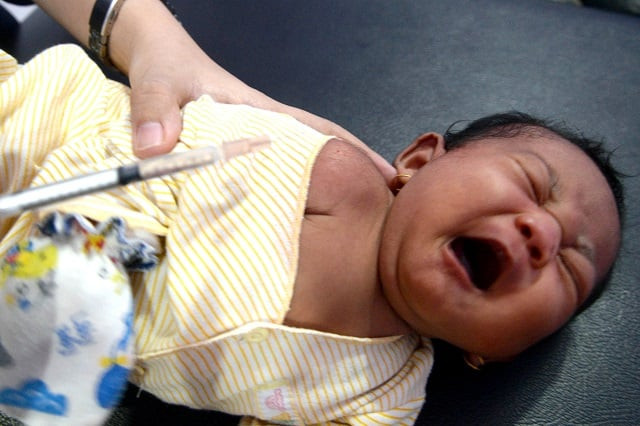NIH cautions authorities against Diphtheria cases
Advisory says sporadic cases continue to surface in country

The National Institute of Health (NIH) on Thursday alerted health professionals to remain vigilant for picking up suspected Corynebacterium Diphtheria cases and to undertake prevention and control measures during the winter season.
According to the advisory issued by the NIH’s Center for Disease Control for Prevention and treatment of Corynebacterium Diphtheria, sporadic cases of Diphtheria continue to be reported in Pakistan, usually presented from November to February while in 2022, there were 26 laboratory-confirmed cases reported from all across the country.
It said that the Diphtheria is a potentially life-threatening bacterial disease caused by infection with toxin producing strains of Corynebacterium Diphtheriae. It is transmitted usually from person-to-person through respiratory droplets from coughing or sneezing.
Informing about the probable cases, the advisory said that any person who meets the clinical case definition for respiratory diphtheria like upper respiratory tract illness characterised by laryngitis or pharyngitis or tonsillitis and a visible adherent membrane on the tonsils, pharynx or nose and without epidemiological linkage and laboratory confirmation.
It added that any confirmed case is a probable case that has been laboratory confirmed or linked epidemiologically to a laboratory-confirmed case. Persons with positive Corynebacterium Diphtheriae culture, but asymptomatic, should not be reported as suspected or confirmed cases.
According to the advisory, Diphtheria transmitted from person to person, skin lesions usually through respiratory droplets (coughing or sneezing). The infection may come in contact or touching open sores (skin lesions) and material objects (toys or clothes) used by the person who already is sick with diphtheria.
The incubation period is between two and five days, occasionally longer while the bacteriological culture and PCR can be used to detect toxigenic strains of C. diphtheria which is a standard test for confirmation specimen collection.
The advisory said that persons should immediately start the treatment if diphtheria is suspected without waiting for laboratory confirmation. It added Diphtheria patients are usually kept in isolation until they are no longer able to infect others.
Published in The Express Tribune, January 13th, 2023.



















COMMENTS
Comments are moderated and generally will be posted if they are on-topic and not abusive.
For more information, please see our Comments FAQ